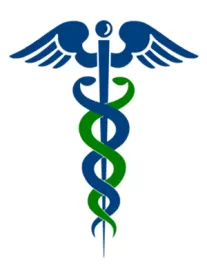A complex—and occasionally, inconsistent—patchwork of federal and state regulatory requirements apply to entities that perform human subjects research in the United States. Differences in certain Common Rule and US Food and Drug Administration (FDA) requirements for the protection of human subjects led to the inclusion of language in the 21st Century Cures Act that requires the Secretary of the Department of Health and Human Services (HHS) to harmonize the two regulatory schemes. Variances in the Common Rule and FDA schemes, however, are not the only examples where the regulatory frameworks that apply to clinical research are inconsistent.
Notably, certain recent HHS revisions to the Common Rule contemplate that, in certain circumstances, researchers may wish to give patients access to results from tests performed under the auspices of clinical research. The Clinical Laboratory Improvement Amendments of 1988 (CLIA), however, prohibit a laboratory from returning patient-specific test results unless that laboratory maintains a valid CLIA certificate—and in many cases, the laboratory performing a test under a research protocol does not. Moreover, CLIA prohibits a laboratory from reporting patient-specific test results until it has established performance specifications for the test—which the laboratory may not have done, particularly insofar as the test is the focus of the investigation. As such, the CLIA requirements limit the dissemination of the very patient-specific clinical data contemplated under the revised Common Rule.
In recognition of this issue, on May 30, the National Institutes of Health (NIH) announced that it had asked the National Academies of Sciences (NAS) to convene a committee to review and evaluate the rules that govern clinical laboratories’ ability to return patient-specific results from tests performed in research laboratories. The committee will:
-
Review the current evidence concerning the return of individual-specific research results to individuals, including the value to the individual participating in the research and society and the quality challenges particular to research results.
-
Review the current regulatory environment, including CLIA and any other applicable laws, for conducting tests and returning individual-specific research results, including the potential regulatory considerations associated with returning such results.
-
Review current practices in returning research results and identify what are considered to be best practices, if any, for doing so.
-
Identify and assess available evidence of benefits and harm to individuals and society regarding the return of research results generated in research laboratories.
-
Make recommendations on the issue of returning individual-specific research results generated in research laboratories that are regulated by CLIA, and also taking into consideration any other applicable laws or regulations.
The extent to which the committee’s recommendations will lead to changes in federal and/or state clinical research requirements remains to be seen. Nevertheless, regulators’ increasing recognition of inconsistencies between regulatory frameworks represents a preliminary (but important) step in efforts to harmonize requirements that apply to human subjects research, especially in an age in which genomic tests will likely proliferate. Insofar as it may be possible to harmonize requirements across regulatory schemes, benefits could accrue to sponsors and researchers (e.g., by reducing costs associated with compliance) as well as research participants (e.g., by facilitating access to meaningful data). As such, entities that perform human subject research should monitor the committee’s efforts and consider participating in any forum in which the committee seeks stakeholder input.





 />i
/>i
